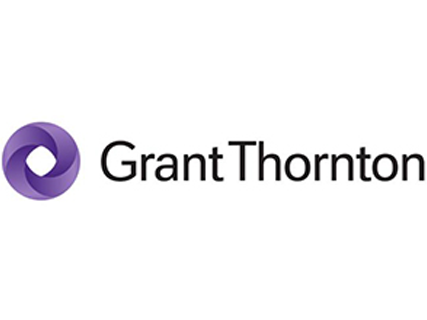
Women Leading the Conversation in the Boardroom: Innovation and AI
Archive

NACD Northern California
Contact Us
Lisa Spivey,
Executive Director
Kate Azima,
Director of Partnerships & Marketing
programs@northerncalifornia.nacdonline.org
Find a Chapter
About The Event
The rapidly evolving technologies and unique challenges companies are facing require boardrooms to be a hub for strategic risk management and innovation.
NACD Northern California plays a key role in educating board members in these critical areas of innovation and artificial intelligence (AI), and the chapter is particularly fortunate that within our community we have some of the brightest minds in these fields willing to share their wealth of knowledge.
NACD Northern California hosted its inaugural Women Tech Director’s event in partnership with Grant Thornton, and we had the pleasure of welcoming Ilya Strebulaev, professor, founder, and faculty director of the Venture Capital Initiative at the Stanford Graduate School of Business, and “Father of AI” Andrew Ng, managing general partner of the AI Fund, founder of DeepLearning.AI, and adjunct professor at Stanford University, for an intimate fireside chat with NACD Northern California Chair Claudia Fan Munce, venture advisor at NEA and board director of Best Buy, Arteris IP, and BMO Financial Corp.
Drawing from their insights and discussions, below is a comprehensive guide for board directors on Strebulaev’s recommendations for embracing a venture mindset and Ng’s perspective on how to leverage AI strategically.
Long-Term Views and Metrics
Strebulaev suggests that board directors shift their focus from short-term quarterly results to longer-term metrics. Public companies often prioritize quarterly results, but it’s important to take inspiration from the nimble approach taken by venture capitalists. Strebulaev highlighted the importance of incentivizing executives for long-term success by looking at long-term metrics and ensuring comparable metrics are reviewed year-over-year.
Innovation and Leadership
Bet on the jockey, not the horse—Strebulaev said to invest in visionary leaders and back founders who show potential, even if they’ve faced failure before. He also emphasized that innovation is driven by people and that success often hinges on the strength of the team. Board members must separate between “project” failure and “people” failure.
Strategic Decision-Making
Implementing forward-looking metrics such as customer lifetime value is crucial to success. Conduct a “premortem” exercise with the board and leadership as a tool to manage future challenges and make informed decisions. Strebulaev explained that board leaders should be prepared to pivot if needed and have a good understanding of when to pull the plug on projects that are not yielding the necessary results.
Investment Strategy
Strebulaev anticipates that corporate venture capitalists will likely surpass institutional venture capitalists in market dominance. At present, many corporate venture capitalists are ineffective since they are not fully implementing venture mindset principles and concepts, such as evaluating whether an investment is anti-portfolio or truly questioning if it is aligned to long-term strategic goals. Investors should avoid the trap of escalation of commitment and remain open to new opportunities. Strebulaev also recommends implementing mechanisms to prevent biased decision-making of investments to ensure alignment with long-term goals.
AI in the Workplace
Andrew Ng encouraged board directors to use AI as a tool for transformation and efficiency, such as using it to conduct task-based analyses to identify opportunities for automation and cost savings. When asked about risks surrounding AI, Ng said the benefits of effectively using the technology outweigh the risks. Board directors should implement a robust risk-management strategy and foster a culture of responsible AI use.
Investment in AI
Regarding when companies should invest in AI to maximize the output and minimize costs, Ng recommended prioritizing flexibility in AI investments and focusing on application development rather than the underlying technology. He also suggested implementing governance structures that focus on the application of AI and conducting thorough risk analyses to identify potential pitfalls when making investment decisions.
Board Education and Talent Acquisition in AI
In many boardrooms, there have been discussions on how to allocate responsibility for AI oversight, and Ng highlighted board education as a crucial tool for driving this forward. Although an AI expert is helpful for every board, it’s imperative that all board directors take advantage of the educational programs out there to understand the latest with the technology (Ng’s “AI for Everyone” was one of the most popular courses on Coursera in 2023). Bridging the AI talent gap is important while the skills required for new technologies catch up—and Strebulaev added that companies look at recently failed start-ups to find hidden gems of great talent.
Innovation is not without its risks, but as Ng noted, the benefits of such innovation far outweigh the risk of not embracing it. Boards must strike a fine balance between risk management and innovation, leveraging AI responsibly to drive sustainable growth.
Ilya Strebulaev’s new book The Venture Mindset: How to Make Smarter Bets and Achieve Extraordinary Growth, coauthored by Alex Dang, covers some of the topics discussed here in more detail.

Thank you to our generous sponsor for hosting this event:

NACD Northern California
Contact Us
Lisa Spivey,
Executive Director
Kate Azima,
Director of Partnerships & Marketing
programs@northerncalifornia.nacdonline.org
Find a Chapter